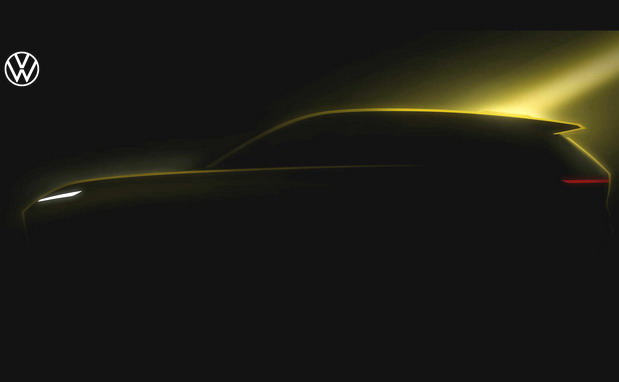Traditional foreign automakers are running out of time to adapt to China’s electric car market, signaling to industry analysts that companies must double down on local partnerships to survive.
Fossil fuel-based automakers have struggled to hold onto their place in the world’s largest auto market, which has rapidly transformed into one where new energy vehicles now account for more than half of the country’s car sales.
If foreign brands “can’t launch competitive clean energy vehicles in the Chinese market soon, the only hope to save market share is likely to partner with a domestic player,” said Tu Le, founder and director of Sino Auto Insights.
“But is it too late? Maybe for a number of foreign brands,” said Le.
General Motors, Volkswagen and Nissan all saw revenue decline in China between 2019 and 2023, according to CNBC data.
In 2023, South Korea’s Kia reported sales in China more than 30% below 2020 levels. Tesla, by comparison, said its sales in China grew more than sixfold between 2019 and 2023.
As investor concerns grow, management is reviewing plans. GM Chief Executive Mary Barra said the company had scheduled meetings with shareholders and board members of the joint venture to discuss “restructuring” to improve profits in China, once GM’s top market by revenue.

Beijing has required American, German and other foreign automakers that entered China decades ago to set up joint ventures with local, usually state-owned, firms.
It was not until 2022 that the Chinese authorities allowed foreign car companies to fully own their local production. But it was a lucrative market, with GM and Volkswagen holding the top two spots in terms of market share as late as 2022.
China’s BYD and Geely have since risen, consolidating their first and second place positions in the market, according to data from October.
“Western (automakers) are realizing the fact that they can’t just sit here and watch their market positions just erode and erode, and they have to do something, they have to do something big,” said David Norman, a Hong mergers and acquisitions attorney. from Congo at A&O Sherman.
Represented Stellantis last year in its $1.59 billion purchase of a 20% stake in Chinese electric car maker Leapmotor.

“If I were to take out a crystal ball, I think we’re definitely going to see more close games,” Norman said. “The technological advantage that Chinese NEV firms have is significant and growing.”
While Tesla’s version of the driver assistance system has yet to gain full approval in China, domestic players have developed their own. Xpeng, BYD and other local firms use Nvidia, while Chinese telecom giant Huawei has built driver assistance systems and in-car entertainment systems for other automakers.
“To have competitive vehicles in China, (foreign) firms need to have an advanced management system that is comparable to what you see on some Chinese vehicles,” said Stephen Dyer of AlixPartners.
He expects foreign car manufacturers to partner with Chinese firms in the field of driver assistance, not only for the local market but also for foreign markets. Volkswagen last year invested $700 million in Chinese electric car startup Xpeng to create models for delivery in China in 2026. The previous year, the German automaker announced plans to invest 2.4 billion euros ($2.5 billion) in a partnership between its automotive software subsidiary and Horizon Robotics.
Other notable partnerships in advanced driver-assistance technology include Toyota’s announcement last year of a mass-production car joint venture with Chinese autonomous driving startup Pony.ai.
It remains to be seen whether foreign automakers will build an effective advantage by partnering with Chinese firms that sell their own cars or technology in the same market.
“Domestic new vehicle brands are too competitive,” said Weng Yajun, a Shanghai partner at M&A firm JunHe Law. “You can put in all your effort and still only sell a few cars.” Weng expects industry players to fight “to the death” for survival rather than acquisitions in the near future.
Automakers in China have slashed prices to attract buyers, while launching a slew of new models in just one year. Even state-owned car firms are struggling.
That means foreign automakers have to compete with state-owned ones for any local acquisitions, said Yiming Wang, an analyst at China Renaissance Securities. He added that Chinese startups are also not yet at the point where they want to sell themselves, despite operating at a loss.

Volkswagen’s stake in Xpeng remains the most prominent tie-up between a foreign automaker and a Chinese electric car startup in the Chinese market so far.

The German company is trying other strategies to regain its market share. Its Audi brand, along with partner SAIC, China’s state-owned automaker, launched a new electric car brand in China this month that ditches the four-ring logo and instead features “AUDI” in rounded capitals.

The market share of foreign carmakers in China is likely to fall next year, and some brands are actually leaving the country, said Jing Yang, director of corporate ratings for Asia Pacific at Fitch Ratings.
Global auto firms are also facing competition from Chinese automakers expanding overseas, Yang said. He noted that despite tariffs, such as those in the European Union, “Chinese firms will not easily give up overseas expansion for higher profitability.”
Source: Seebiz.eu / CNBC
Photo: Arhiva Autoblog.rs / VW / Cadillac / Leapmotor / AUDI
Source: autoblog.rs


